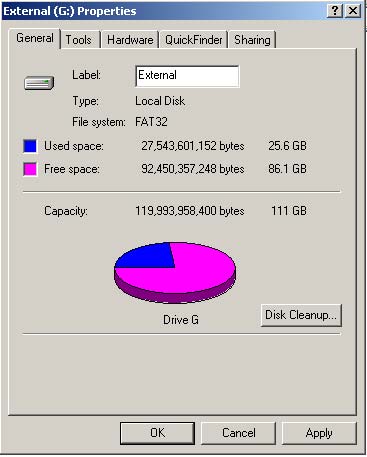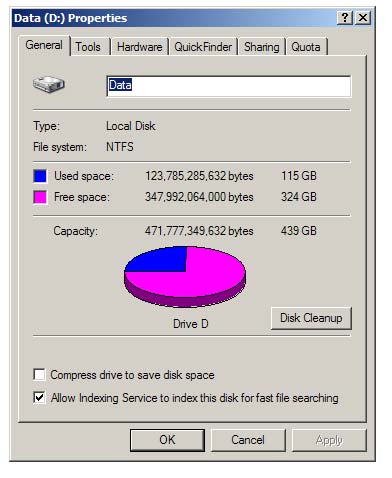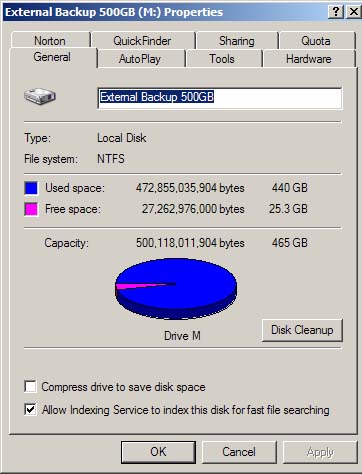
© Bill Barrett, 2007
This disk was marketed as 120 Gigabytes, but while it does hold just under 120 Billion bytes when counted decimally, a Gigabyte is not a decimal measurement. In fact, it's short of that by more than 9 GB:

Note that as the size of the disk increases, so does the disparity of its alleged capacity. This disk holds 33 GB less than it's decimal parallel:

This disk announces a 500 GB capacity, but really holds 465. So, while the disparity between decimal and binary numbers is constant at 9.3%, the discrepancy gets larger as disks get larger.

When disk capacities were measured in Kilobytes (1,024 bytes) and Megabytes (1,048,576 bytes), the difference from the decimal thousand and million hardly felt significant to most people. But that really has changed.
No matter who claims that a Gigbyte is one billion bytes, it is not. It is 1,073,741,824 bytes, and that certainly adds up. Be sure to ask for a 9.3% refund the next time you buy a large capacity disk, because that's what you have been cheated of. (OK, you're not likely to get a refund, but at least go into the purchase knowing what you're really getting. And you would not be wrong to let the sales people or store managers know that it is fundamentally dishonest to represent otherwise.)
(Wait until disks measured in Terabytes become more common. That's 1,099,511,627,776 bytes, not 1,000,000,000,000!)